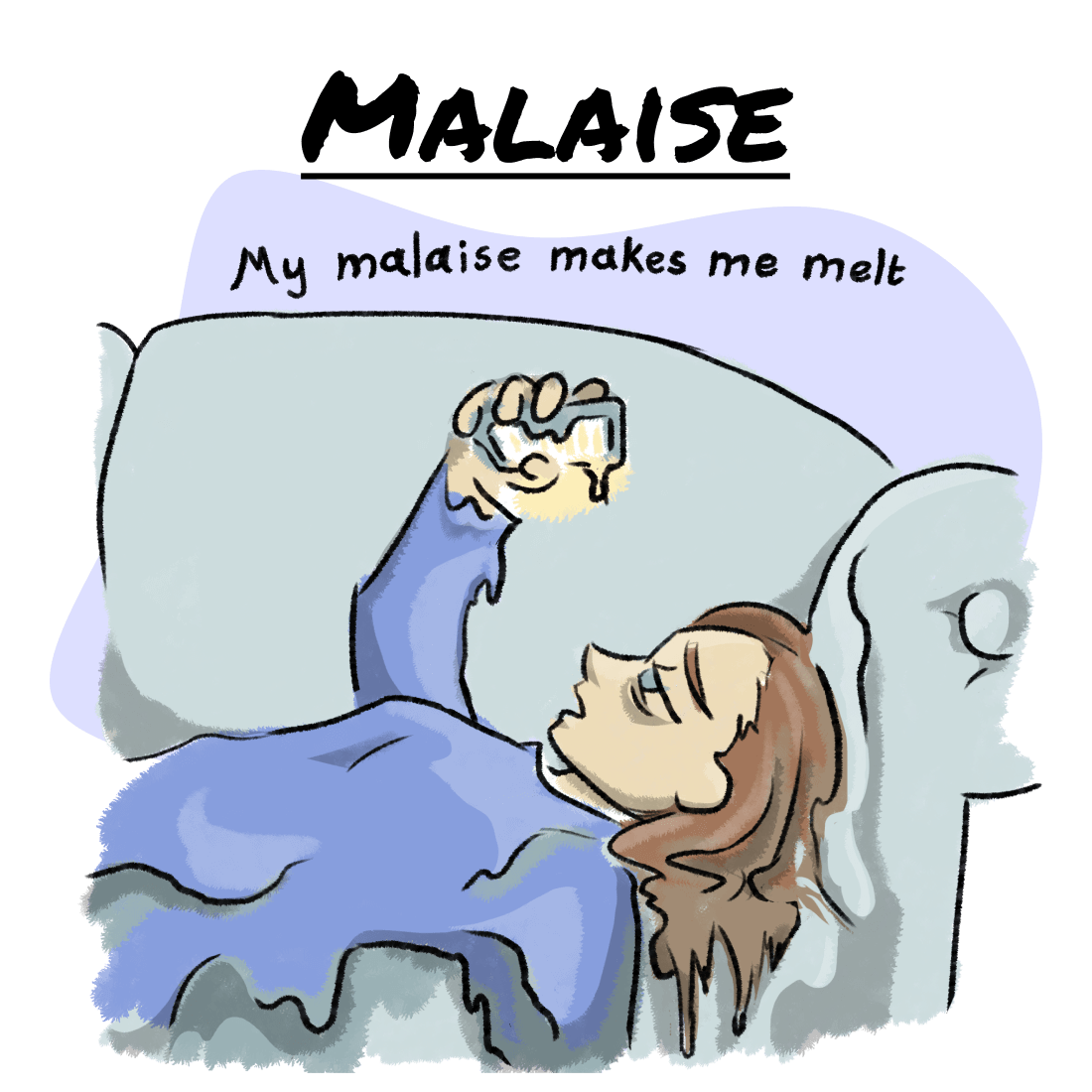
Malaise is described as any of the following;
- A feeling of overall weakness
- A feeling of discomfort
- A feeling like having an illness
- Simply not feeling well
It often occurs with fatigue and an inability to restore a feeling of health through proper rest.
Depending on the cause, malaise can start slowly or hit suddenly. Scores of illnesses or disorders can lead to different degrees if malaise. They may range from viral conditions and blood diseases to organ failure and psychiatric disorders.
Symptoms
Malaise is a general feeling of being unwell. It is a symptom, not a condition.
People tend to experience and describe malaise in different ways, but their descriptions tend to involve one or more of the following elements;
- Discomfort
- Pain
- Illness
- Depression
- Fatigue
These symptoms may appear suddenly, or they may come on very gradually. Also, for some people, malaise comes and goes, while for others it is lasting.
Malaise may be mild to severe. In some cases, it is so severe that it interferes with a person;s work performance, family life, and other relationships.
Causes
Medical conditions
There are numerous possible causes of malaise. Any time the body undergoes a disruption, such as an injury, disease, or trauma, the patient can experience malaise. The causes listed here represent some of the many possibilities.
Emotional or Psychological Causes of Malaise
Malaise may be caused by emotional or psychological disturbances including;
- Depression
- Fatigue
- Stress
Physical Causes of Malaise
Malaise can also be caused by chronic physical disorders including;
- Anemia (low red blood cell count)
- Arthritis, including rheumatoid arthritis (chronic autoimmune disease characterized by joint inflammation)
- Bacterial infections
- Connective tissue diseases (disorders of the body’s connective tissue, such as lupus)
- Fibromyalgia (chronic condition that causes pain, stiffness and tenderness)
- Gastrointestinal conditions, such as inflammatory bowel disease or infections
- Heart disease
- Hypothyroidism (underactive thyroid)
- Kidney disease (includes any type of kidney problem, such as kidney stones, kidney failure and kidney anomalies)
- Lung disease
- Viral infections, including HIV, mononucleosis, or other conditions
Diagnosis
The doctor will perform a physical examination. They’ll look for an obvious physical condition that could be the cause of the malaise or could give clues about its cause.
They will also ask questions about the malaise. Be prepared to provide details such as approximately when the malaise started and whether the malaise seems to come and go, or is constantly present.
The doctor will also likely ask questions about recent travel, additional symptoms the patient is experiencing, any challenges they might have in completing daily activities, and why they think they’re having challenges.
The doctor will also ask about medicines the patient is taking, if they use drugs or alcohol, and whether they have any known health issues or conditions.
If they aren’t sure what’s causing the patient to feel malaise, they may order tests to confirm or rule out one or more diagnoses. These tests may include blood tests, X-rays and other diagnostic tools.
Treatments
Treatment for malaise depends on its cause. When malaise results from a medical issue, treating this issue should help resolve the malaise.
People who experience unexplained fatigue may be tempted to use stimulants, such as caffeine or modafinil (Alertec). These drugs may alleviate fatigue in the short term, but they are not a permanent solution. Instead, people with fatigue may benefit from regular physical activity, such as stretching and aerobic exercise.
When malaise is characterized by feelings of depression, a person may benefit from antidepressant medication, which may alleviate symptoms and increase energy levels. Some people also benefit from talking therapy, such as cognitive behavioral therapy.
People with malaise should see the doctor for regular checkups. This can help the doctor better understand an underlying issue, resulting in a more accurate diagnosis and more effective treatment.
What We Offer
We at Almurshidi Medical Tourism will find the best doctors to cater to your needs. We are partnered with a wide network of hospitals and clinics that provide top quality medical experience.
We provide free medical estimates, make medical appointments, and provide several medical opinions if needed at no cost.
Contact Us
For more information contact us at +66822004040 or via WhatsApp







